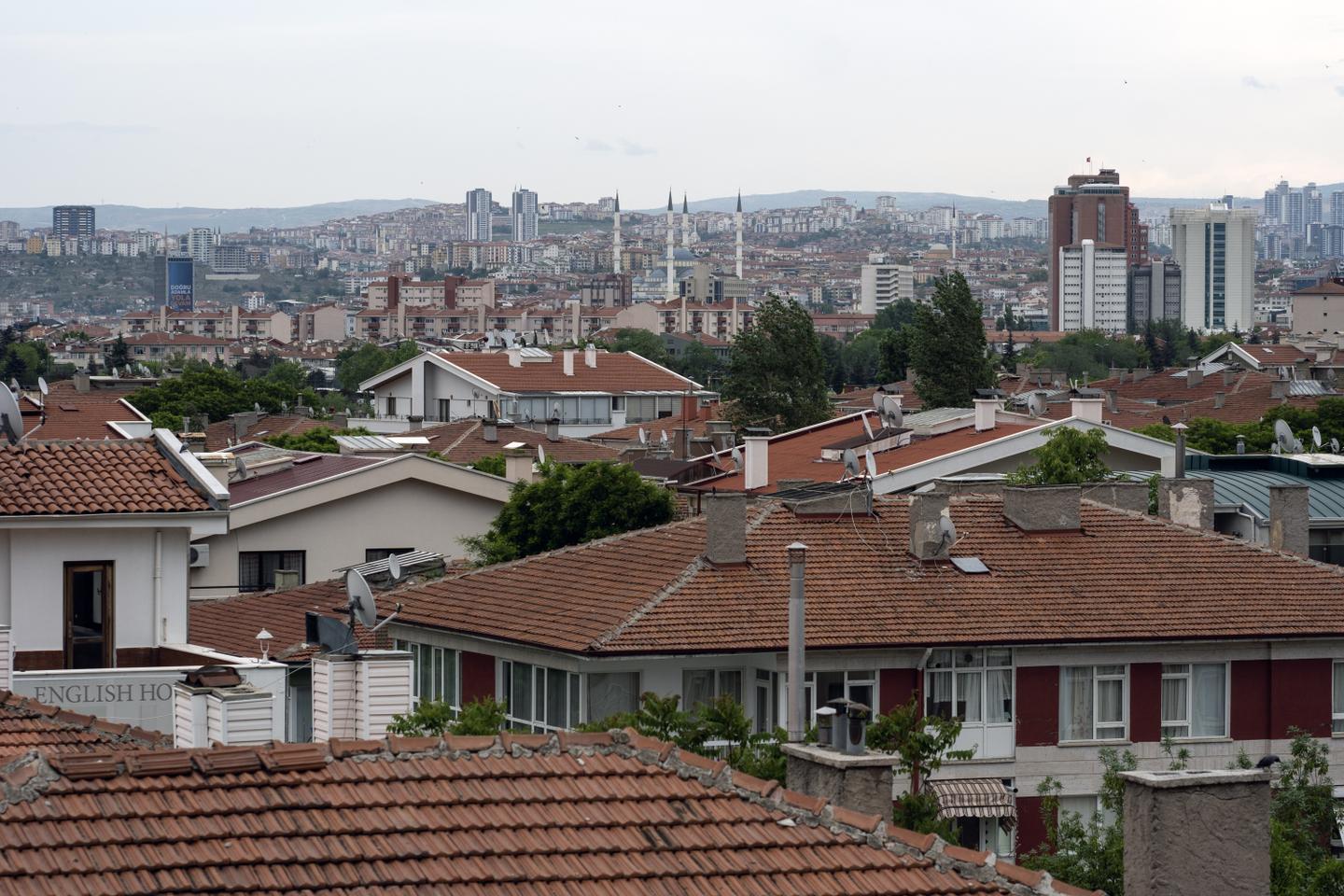


Cardboard pieces obscured the windows, allowing only the dim glow of a bulb to illuminate the coffee table. In this small space, the air was heavy with the combined odors of dampness and tobacco while the glowing wires of the electric heater struggled to warm the room. Sitting cross-legged on the cold floor, Pelin (all names have been changed) placed the flame of a lighter under the aluminum foil and brought the small straw she held between her lips close to it. She took a puff, coughed a little and cleared her throat before mechanically resuming the ritual.
With her red-dyed hair and her eyes highlighted with kohl, the pale-skinned young woman wore only a tight-fitting, low-cut t-shirt. For a few weeks now, she has been living in this little shack in the deprived Altindag district of Ankara, alongside her fellow hardship-stricken friends, Kemal and Utku. She is from Ankara, Kemal from Istanbul and Utku from a distant town in Anatolia. Thirty years separate them and nothing suggested that their paths would one day cross. But heroin brought them together.
"I've heard that drugs push users into trafficking... I have to admit, it's somewhat true," said Kemal in a hoarse voice. His emaciated body is barely visible under his loose shirt while his gaunt face shows no expression. He has been using heroin daily for eight years, several times a day. He was arrested a few years ago and sent to "Amatem," the state rehabilitation center. The stay, he admitted, gave him temporary relief, but the substitution drugs weren't enough. In just a few months, he knew all the tricks to appear "clean" in medical tests. But he risks going to prison. Article 191 of the Turkish Penal Code provides for two to five years imprisonment for drug users.
'Poor man's cocaine'
On the other side of the street, Dogu and his friend Osman, with their military haircuts and black down jackets, were drinking tea on the terrace of a small canteen. "I nearly killed myself after taking heroin. So I stopped, and now I take 'amca' [literally, 'uncle,' slang for methamphetamine]," explained Dogu, with a blank look on his face. "The problem is that I take it every day. It's very expensive and I lost a molar because of it," he said, pointing to the back of his jaw. Presented in the form of small transparent crystals, a dose of methamphetamine sells for 300 Turkish liras (around €10) and is rarely enough to satisfy the user.
Since this "poor man's cocaine" has arrived in the neighborhood, it has become part of everyday life in many households. Necmi Erdogan, professor of political science at the Middle East Technical University, who works on extreme poverty in Ankara's northern districts, estimates that "one household in four" is affected by addiction to a psychotropic substance by one or more of its members. "Methamphetamine use has increased significantly in recent years. Amatem's care and hospitalization services have increased their capacity, but we need more beds," confirmed Ebru Aldemir, senior lecturer in the Department of Psychiatry at Izmir's Tınaztepe University, specializing in addictology.
You have 55% of this article left to read. The rest is for subscribers only.
